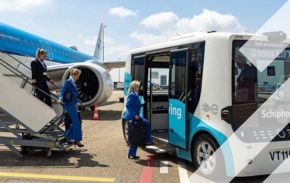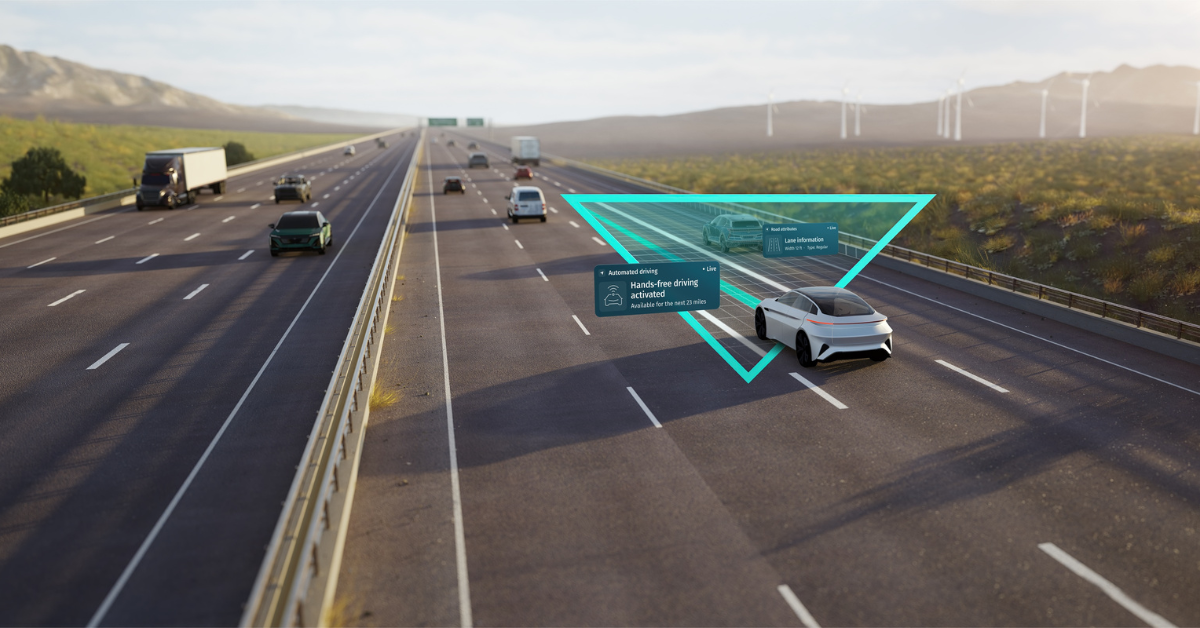Loading component...
Speeding up the mobility transition | Nico Larco, Urbanism Next

‘New mobility or AVs are not just a transportation issue; they are an everything issue.’
With the continuous growth of the population and ongoing urbanization there are numerous mobility challenges. Sustainability, safety and societal impact are amongst our daily concerns. We need to speed up the mobility transition to keep up with the fast changing global dynamics, which requires inventive approaches and better solutions. In this series we share inspiring and innovative cases from all over the world. Nico Larco is Director of Urbanism Next and Professor of Architecture and Urban Design at the University of Oregon. How does he speed up the mobility transition?
After having done research in sustainability and environment for decades, four years ago Nico Larco was shocked to find that there is a lot research done on the technology of traffic and mobility and the impact of it, but never on the impact mobility and innovations could have on our society or a city. Urbanism Next is the primary source for information about the potential impacts of emerging technologies, such as autonomous vehicles, new mobility, e-commerce and the sharing economy on city development, form, and design and the implications for sustainability, resilience, equity, the economy, and quality of life.
15 December: Join our webinar debate on the path to autonomous driving
‘We were less interested in the technology, but in the impact E-Commerce, autonomous driving or other innovations could have on a city as a whole. It could have an impact on real estate, land use, urban design, and building design. How is that going to affect things such as equity, health, the economy and the environment? There was very little research looking at how disruptive mobility innovations could be for a city. As a researcher this was tremendously exciting, because you find an area that's not very well researched. On the other hand, it was terrifying, because we have only recently started to truly understand the enormous impact and what we should be doing about it. Our goal is to try to understand the topic in terms of what exactly might be happening globally and to educate people from a range of different disciplines to understand that autonomous vehicles will actually have a huge impact on things such as equity concerns and economic development.’
‘We should not be victims of technology, but instead we should shape it to help us achieve community goals.’
‘The key is to get both public and private sector to talk to each other and foster dialogue. If people had had the foresight to think what impacts the advent of automobiles 100 years ago might be, we might have shaped things differently and not run into a society where we are still trying to get ourselves out of the problems the automobile has caused. We have this opportunity to think proactively about emerging technologies, but is there a way we could leverage them for positive outcomes to help societal goals? We don’t want people to say the same of the autonomous vehicle a hundred years from now, right? We should not be victims of technology, but instead we should shape it to help us achieve community goals.’
‘AV, MaaS and other technologies might make our transportation system much more equitable. However, if we end up with Mobility as a Service that does not have public transit as a backbone, but is more car based, we would end up causing more traffic and emissions. The real challenge is how to make transport most efficient across the different modes, with open systems that allow competition, innovation, really serve people’s needs well, and is allocated most efficiently.’
‘New mobility and AVs are not just a transportation issue, they are an everything issue.’
‘What we have worked really hard at is trying to get people outside the transportation system to think about and understand the impact these emerging mobility systems could have on the city. New mobility and AVs are not just a transportation issue, they are an everything issue. They will be affecting land use, urban design, equity, and the economy. We must have people who are interested in all of these issues engaged in the shaping of our AV future.’
‘Autonomous vehicles are happening. The question is where and will it be widespread. In sunny places with wide roads and without many cyclists and pedestrians, this is already happening. In some cities in the United States we have autonomous taxis driving around and picking up riders today. Will an AV future be good? This completely depends on us. If we use the technology to fill gaps in mobility, for instance in public transit, this could be fantastic.’
‘Some U.S. cities see a 180% increase in congestion due to taxi services.’
‘However, if we use AVs as a new car or a taxi system, we will have more sprawl and congestion. In the US we have a lot of Uber taxi services and this is a comparable model to an AV system. We see a tremendous impact in congestion: according to Bruce Schaller’s study, Uber-like services are causing an increase of 180% in vehicle kilometres travels (VKT) compared to the same trip done by a private vehicle. A large part of the trip the car is waiting, driving around, repositioning, or driving to pick up a rider. If we don’t change this behaviour for the use of autonomous vehicles, we will experience the same kinds of problems.’
‘With AVs come data. Something else, however, we have to challenge is our fear of sharing data. Everyone is concerned about data, in the US we don’t want government to have it and yet we do not seem to bother at all that large companies have been collecting information about where we go all the time. We don’t want a city to have it but we let large companies – where we have no representation or ability to vote to change – have it, which to me sounds bizarre. The data is really important to optimise the transportation system, but the same goes for privacy protection. We have to figure out systems that use third parties that are neutral, can manage the data and protect it on the other hand.’
‘Our research finds that more companies being involved in the marketplace is better. This avoids monopolies or duopolies, can create incentives based on competition, and can avoid the fear companies have of competitors being able to decipher all of their operations (if data that is reported is only between two companies). There are tons of companies offering scooter and bike sharing services and it is not so easy to track and steel companies’ secrets. The data is massed with all the competition.’
‘The other concern we have is on how it will change the form of cities. Automated driving can bring us further in less time thanks to smart technologies. Instead of driving half an hour, you can do exercise, make a phone call, work etcetera. This makes the travel time and distance seem a lot shorter. In the near future we will probably decide to work from home two or three days a week. On the days we do travel, if driving is done by the car and we can do other tasks, we may be willing to travel a longer distance. This will put an enormous pressure on expansion of the metropolitan footprint and, as we know, this has huge economic, environmental and equity implications.’
‘On the one hand, speeding up the mobility transition is great because it could provide great benefits for us. But at the same time, if we speed up the innovation without bringing along a good understanding of all the consequences and shaping that, this would not be a good thing. By doing research, fostering dialogue and educating, I want to speed up the understanding of the implications that speeding up the mobility transition may have. Seeing a light bulb go off with people we speak to about this and who are either in or outside in the transportation field shows us that we are really making a difference.’

.png?h=183&iar=0&w=290)

